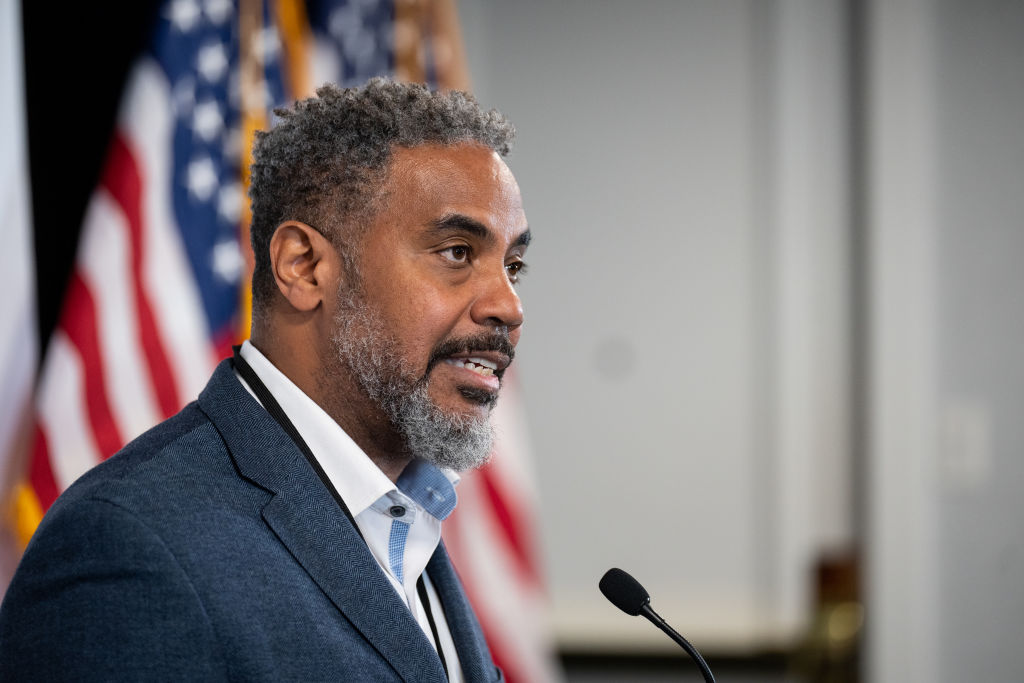Secure Da Bag
Veteran
Did the CBC send 50 Cent to promote the Black Wealth Agenda. Or did 50 go rogue?

 www.yahoo.com
www.yahoo.com

 www.blackenterprise.com
www.blackenterprise.com

Black Twitter Wasn’t Having It As 50 Cent Visited Lauren Boebert, Other Members of Congress To Promote ‘Black Wealth Agenda’
50 Cent and Lauren Boebert are not a pair that most people were expecting to join forces, but the sight of the two of them together has had social media abuzz — potentially overshadowing 50’s trip to Capitol Hill and symbolizing the issues that many folks have with the rapper’s aims in...
Black Twitter Wasn’t Having It As 50 Cent Visited Lauren Boebert, Other Members of Congress To Promote ‘Black Wealth Agenda’
50 Cent visited the nation’s capital on Wednesday to meet with lawmakers about promoting Black wealth.
...
Accompanied by people such as famed civil rights attorney Ben Crump, 50 Cent met with a number of other members of Congress from both parties, including current Speaker of the House Mike Johnson, R-La., former Speaker Nancy Pelosi, D-Calif., and former chair of the Congressional Black Caucus Joyce Beatty, D-Ohio, as well as Democrat Troy Carter and Republican Steve Scalise of Louisiana.
Many people on social media expressed disappointment with the legislators for turning to 50 for an economic plan instead of consulting experts within the Black community. Researcher Anna Gifty Opoku-Agyeman tweeted, “A loud reminder that there *are* Black economists who study the racial wealth gap and how to close it,” before noting, “However, congress has taken 50 cent’s name to mean that he knows a thing or two about economic policy.”
...
Still others pointed out that the actual issue that 50 Cent was in Washington to address — Black ownership in the liquor and music industries — is not necessarily beneficial to the Black community but is more about 50’s own wealth, as he is in the middle of a corporate dispute over his own liquor company.
“He’s not advocating for more funding for black schools, allocation of funds to underfunded community programs, The eradication of food desserts,” tweeted one disappointed observer, adding, “They only serve themselves.”

Congressional Black Caucus Introduces Resolution Targeting Racial Wealth Gap
The Congressional Black Caucus announced a resolution focused on creating Black wealth and using that to advance its agenda in the House.
Rep. Steven Horsford (D-NV) told members of the Black press during a February meeting, “Our goal is simple: We want to create a Day One Agenda for the next Congress focused on Black economic creation for the start of a Democratic House majority.”
Horsford continued, “The Congressional Black Caucus will be in a position to advance an agenda that can move through the House, through the Senate, and signed by the President of the United States, one that addresses racial equity and the racial wealth gap, but also tackles some of these major issues.”
Rep. Joyce Beatty (D-OH), who helped draft the resolution, stated in the press release that the Caucus should address long-standing economic issues affecting Black Americans.
“Economic disparities continue to plague this country. We see it in unequal access to capital, appraisal bias, overrepresentation in minimum wage jobs, and constant barriers to wealth-building opportunities, to name just a few,” Beatty said. “While conservative activists seek to undo our recent gains, the Congressional Black Caucus stands united in the fight for equity, justice, and prosperity for every American. We know that when Black America succeeds, America succeeds.”
The plan is based on the Black Economic Alliance Foundation report, “Policy Agenda to Advance Black Work, Wages and Wealth” which points out that white Americans have an average wealth per capita of $284,310 compared to a figure of $44,100 for Black Americans.
In 2020, William “Sandy” Darity and A. Kirsten Mullen argued in a commentary on reparations and the racial wealth gap for Brookings that the racial wealth gap is based on the unmet promise of reparations. They also traced a lack of policy aimed at rectifying the racial wealth gap from Reconstruction to the 20th Century in their commentary.
“The origins of this gulf in Black and white wealth stem from the immediate aftermath of slavery when a promise made to provide the formerly enslaved with 40 acres in land grants went unmet—while many white Americans were provided substantial ‘hand outs’ (typically 160 acres) of land in the West,” they wrote.
Rep. Glenn Ivey, (D-MD) who helped draft the legislation, stated in the press release that Black American prosperity is good for everyone.
“From education to entrepreneurial opportunity, from equity in housing and healthcare to equal treatment at the ballot box and at the bank, Black wealth creation must build upon the solid foundation that what’s good for our Black communities is ultimately good for the American economy, American society, and America at large.”
The Black Economic Alliance President/CEO Samantha Tweedy communicated via the press release that her organization looks forward to working with the CBC. “We share these leaders’ commitment to community-informed, data-driven steps to move economic opportunity for Black Americans to the forefront of our nation’s agenda.”
